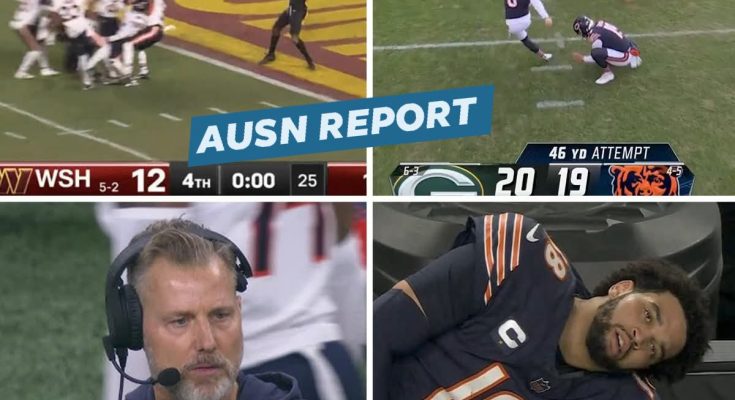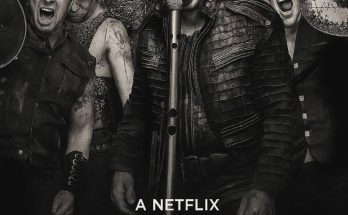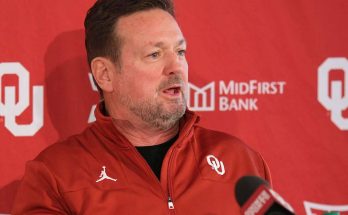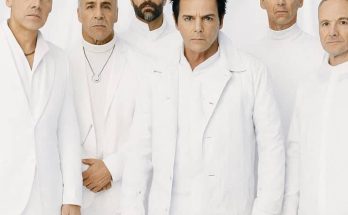The 2024 Chicago Bears season was supposed to be a turning point, a chapter of progress after years of disappointment. Instead, it unraveled into a chaotic, painful display of dysfunction, missed opportunities, and historic lows. For a fan base already hardened by decades of mediocrity, what unfolded tested even the most loyal supporters. It started with hope and ended with housecleaning, regret, and the bitter taste of “what could’ve been.” And somewhere in between, fans witnessed some of the most gut-wrenching moments in franchise history.
Things started going sideways early. One of the lowest points came in Week 5 against the Washington Commanders. The Bears had clawed back from a 17-point deficit, and with only seconds left on the clock, the Commanders launched a desperation Hail Mary from midfield. The ball floated through the air, seemed to hang in time, and then—unbelievably—landed in the hands of a Washington receiver after a miscommunication in the Bears’ secondary. Touchdown. Game over. The kind of play that only happens against the Bears, never for them. It wasn’t just a loss; it was a gut punch that became symbolic of a season filled with broken assignments and mental lapses.
The pain didn’t stop there. In a late-season game with playoff implications for the Packers, Chicago found itself in a rare position to play spoiler. After a surprisingly solid performance on both sides of the ball, the Bears managed to set up a game-winning field goal attempt as time expired. The snap was clean. The hold was perfect. But then came the block. A Packers lineman broke through the middle almost untouched and got a hand on the ball. It fluttered to the ground harmlessly, the stadium silenced in disbelief. Once again, the Bears had victory within reach only to see it crumble in the most soul-crushing way imaginable.
Then came Thanksgiving, a primetime game that only magnified the Bears’ dysfunction. With a chance to ice the game against the Lions, the Bears’ offense inexplicably let the clock run down inside the red zone without calling a timeout. Players looked confused, the sideline was disorganized, and before anyone realized what was happening, time had expired. The clock ran out not just on the game, but symbolically on any faith fans had left in the coaching staff. It was the kind of clock management failure that’s usually reserved for high school teams—not an NFL franchise that had spent millions on analytics, coaching, and player development. Matt Eberflus was grilled in the post-game presser, but the damage had already been done. The optics were horrendous. The fanbase had seen enough.
The inevitable came just weeks later. In the wake of back-to-back meltdowns and a locker room reportedly teetering on the edge, the Bears’ front office made sweeping changes. Matt Eberflus, the defensive-minded head coach whose teams consistently failed to deliver on that side of the ball, was shown the door. Shane Waldron, brought in to revitalize the offense and help guide a rookie quarterback through his first NFL season, was also fired. It was a double dismissal that, while necessary, also raised serious questions about leadership and direction. The front office had banked heavily on this coaching staff to build around their No. 1 overall pick, and now they were left starting over—again.
But perhaps no moment defined the season quite like the franchise-record losing streak. Between Week 2 and Week 11, the Bears failed to win a single game. That’s ten straight losses—a number that’s more fitting for expansion teams or rebuilding projects, not a charter franchise in one of the league’s biggest markets. Each week felt like a different flavor of despair. Blowouts, last-second collapses, turnovers, mismanagement—it all piled up. By midseason, Soldier Field was half-empty, social media was a firestorm, and even the players looked like they were waiting for the season to just end. Coaches preached resilience, but the results said otherwise. The losing streak didn’t just damage morale—it broke trust. Fans tuned out. Players regressed. The brand took a hit that will take years to recover from.
And in the middle of all of this turmoil was Caleb Williams. The highly-touted rookie quarterback, taken first overall with hopes that he’d finally be “the guy,” spent most of the season running for his life. The Bears’ offensive line was a disaster, offering little in the way of protection or stability. Williams was sacked an astonishing 68 times over the course of the year, the most in the NFL by a wide margin. Every week, it seemed like he was picking himself up off the turf after another blown assignment or missed block. His talent was obvious—flashes of brilliance, mobility, tight-window throws—but it was constantly overshadowed by poor pass protection and predictable play-calling. The cumulative effect? A quarterback who began to develop bad habits and show visible frustration on the sidelines. He never publicly complained, but the exhaustion was clear.
By season’s end, Williams looked like a young QB in survival mode rather than a future superstar. It wasn’t just the hits. It was the pressure, the burden, the expectation—all of it crashing down on someone still adjusting to life in the pros. And with each sack, fans grew more anxious. Was this another generational talent being squandered by poor infrastructure, just like so many Bears quarterbacks before him? Justin Fields. Mitch Trubisky. Jay Cutler. The names change, but the script seems stuck on repeat. Draft the guy, fail to protect him, watch him regress, blame him, repeat.
Injuries, of course, played their part. The offensive line was a revolving door, with multiple starters missing time due to everything from ankle sprains to season-ending knee injuries. The defense, though improved in some areas, struggled to stay healthy and lacked any consistent pass rush. Games where the Bears scored 30-plus points still ended in losses because the defense couldn’t hold leads. The secondary was torched more than once in high-leverage situations, and third-down defense was among the worst in the league. Eberflus, despite his background, failed to field even a league-average defense, which became the final nail in his coaching coffin.
Leadership was lacking across the board. There was no identity, no fire, no urgency. Players gave clichéd answers in interviews. Coaches gave vague explanations about “execution” and “details.” Meanwhile, fans were left wondering how a team with young talent and high draft capital could look this lost. Even special teams, usually a bright spot, had its share of blunders. Muffed punts, poor returns, and inconsistent kicking only added to the chaos. The Bears weren’t just bad—they were fundamentally broken in nearly every phase of the game.
The front office now faces an offseason full of massive decisions. Do they rebuild the offensive line around Williams or go for splashy free agents? Can they attract a competent head coach and offensive coordinator who won’t waste another year of their quarterback’s development? Will they finally establish a winning culture, or will next season just be another chapter in a seemingly endless cycle of disappointment?
For a franchise with one of the most passionate fan bases in football, the 2024 season felt like a betrayal. All the promise, all the hype, all the talk of turning the corner—it collapsed under the weight of poor leadership, bad execution, and critical mistakes in the biggest moments. That Hail Mary in Washington. The blocked field goal in Green Bay. The Thanksgiving time management disaster. These weren’t just isolated incidents. They were symptoms of a deeper disease—one that’s plagued the Bears for decades.
No matter how many fresh starts they get, the Bears can’t seem to shake their history. They’re stuck in a loop of short-lived optimism and long-term dysfunction. And until someone breaks that cycle, seasons like 2024 will keep repeating. The losing streaks will pile up. The quarterbacks will get hurt. The coaches will get fired. And the fans—loyal as they are—will keep asking the same question they’ve been asking for years: When will it ever end?



